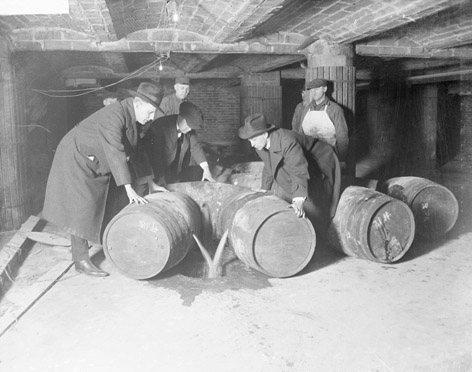Shortly after Prohibition took effect in the United States in 1918, Isadore “Izzy” Einstein (1880–1938) was struggling to make ends meet as a postal worker in New York with a wife and four boys. The combination of the 18th Amendment and the eventual rise of bootlegging became his financial ticket. While reading the newspaper in 1919, he noticed an advertisement soliciting individuals to become federal agents for the newly formed Prohibition Unit.
The hiring agent for the Federal Prohibition Bureau’s Southern New York division figured Einstein to be out of his league since he looked nothing like what a federal agent was proposed to look like. He was short, fat, and unattractive.






